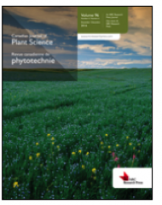H2 is a by-product of the nitrogenase reaction. Exposure to H2 is linked to increased N2O production, increased CO2 fixation and plant growth promotion in soil. The effects of H2 exposure on soil were observed using controlled H2 gas treatments and field trials with legumes. In field trials, increased N2O production was observed in soil adjacent to legume nodules and inoculation of H2-oxidizing isolates led to increased N2O emissions in corn fields. Many H2-oxidizing isolates tested positive for key denitrification genes, indicating a connection between H2 uptake and N2O emissions. H2 treatment significantly increased copy number of the nitrite reductase (nirK) gene suggesting increased denitrification as the source of N2O. There was also a significant increase in copy number and expression of the RubisCO (cbbL) gene in soil. H2-oxidizing bacterial isolates (JM63 and JM162a) were found to promote plant growth, increasing tiller number and yield in spring wheat and barley. Combined results of T-RFLP and 16S rDNA clone libraries analysis revealed bacterial community structure changes in response to H2 treatment, primarily with increases to the Gammaproteobacteria and Betaproteo- bacteria groups. The results of these studies help provide a better understanding of the soil bacterial community’s responses to H2 exposure and may lead to the development of a commercially viable plant growth promoting inoculant.

